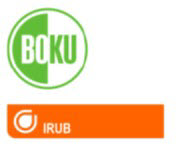Partners
The partners behind the EE Settlement project are SINTEF Building and Infrastructure (SINTEF), The Norwegian Institute for Urban and Regional Research (NIBR) , The Institute of Transport Economics (TØI), Kristiansand municipality, BYLIVsenteret, Akaryon and the Institute of Spatial Planning and Rural Development (IRUB) at BOKU University in Vienna.

SINTEF Building and Infrastructure
SINTEF is the largest independent research organization in Scandinavia. SINTEF performs R&D for EU and international programs, government and non-governmental organizations, service providers, large industrial companies and SMEs.
Within the unit Building and Infrastructure the department Architectural Engineering possess expertise in architecture and building techniques, building processes, technical installations, energy and indoor climate, environmental and life cycle assessment, user behaviour and social aspects.

NIBR – The Norwegian Institute for Urban and Regional Research
The Norwegian Institute for Urban and Regional Research (NIBR) is a social science research institute at HiOA, the Oslo and Akershus University College of Applied Sciences. NIBR's key qualifications lie in place and governance studies, nationally and internationally, in selected policy areas.

TØI – The Institute of Transport Economics
The Institute of Transport Economics (TØI) is an independent and non-profit, Norwegian institution for multidisciplinary and applied transport research. Its wide sphere of research activity includes a research group dedicated to investigating the social conditions explaining travel behaviour and mobility, whose expertise will be key to conduct a comprehensive assessment of the energy bounded to transport when building housing facilities.

Kristiansand municipality
Kristiansand is a city, municipality and the county capital of Vest-Agder County in Southern Norway. Kristiansand is the fifth largest city in Norway with a population of 88 600. Greater Kristiansand has a population of 137.000. Kristiansand contributes to the corresponding case studies, provides data for these studies as well as for the assessments (where appropriate and available) and give input to the requirement analysis and definition of the scope in the initial phase of the project.

BYLIVsenteret
BYLIVsenteret is owned by the National Association of Norwegian Architects (NAL), which is a professional ideal members organization working to promote good and sustainable architecture and urban development. BYLIVsenteret is a continuation of NAL's longtime work with projects regarding sustainable urban development, including Framtidens byer, Framtidens bygder, Norwegian Wood and the start of what is now FutureBuilt. BYLIVsenteret provides professional advice and guidance to local authorities in their work on sustainable urban development and promotes a holistic understanding of sustainability with an equal ratio of social, financial and environmental sustainability.

Akaryon
Akaryon is a research based Austrian SME owned by the two founders. Interest for sustainability topics is part of the corporate mission. To work in this field, the two founders and their ten persons team combine knowledge in Mathematics, Statistics, ICT, Environmental Informatics and Environmental Management. The clear business focus are research based web/mobile environmental informatics solutions – with some already on the market and others in the development phase.

IRUB – Institute of Spatial Planning and Rural Development
at BOKU – University of Natural resources and life sciences
IRUB, the Institute of Spatial Planning and Rural Development, part of the Department of Spatial, Landscape and Infrastructure Sciences (RaLI) at BOKU University 3 in Vienna, is involved in fundamental and applied research in the following fields: spatial planning, integrated spatial and energy planning, planning aspects of risk management, including the spatial aspects of climate change and natural disaster risk management, land rearrangement, environmental planning and assessment as well as regional and rural development. The objective of the work at IRUB is to raise issues of current interest from the viewpoint of sustainable development and scientifically deal with these issues in order to represent and discuss them on national and international level.